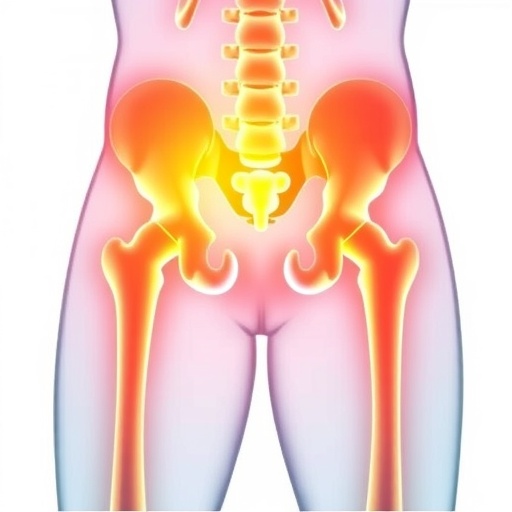Recent research published in the “European Geriatric Medicine” journal has illuminated a critical aspect of patient care among the elderly, particularly those suffering from hip fractures. The study, led by D.A. Ariestine and colleagues, systematically reviews the beneficial outcomes of medication review processes for patients who experience these traumatic injuries. This is especially important as the population ages and hip fractures become increasingly common, often leading to significant morbidity and mortality. The implications of this research resonate deeply, given the growing concern surrounding polypharmacy in older adults.
Hip fractures are a prevalent concern in geriatric medicine, with an estimated 1.6 million cases globally each year. The event can severely impact a patient’s quality of life, leading to extended hospital stays, loss of independence, and increased risk of mortality. Often, these patients are on multiple medications to manage chronic conditions, heightening the risk of adverse drug reactions. The study explored whether comprehensive medication reviews could mitigate some of these risks, reduce hospital stay lengths, or even improve overall outcomes.
The systematic review undertaken by Ariestine et al. analyzed numerous studies examining the parameters of medication reviews. These reviews typically involve a thorough examination of all medications a patient is taking, assessing for potential interactions, duplicative therapies, and unnecessary prescriptions. By evaluating these factors, healthcare providers aim to optimize medication regimens, promoting patient safety while ensuring efficacy. The process is particularly relevant given the prevalence of polypharmacy in older adults, where patients frequently juggle numerous prescriptions.
One notable finding of the study is that medication reviews often lead to the discontinuation of unnecessary drugs, thus reducing the burden of polypharmacy. A balanced approach to medication not only improves patient safety but can also enhance the overall effectiveness of treatment regimens for hip fracture patients. Participants in the studies reviewed demonstrated improved outcomes when engaged in comprehensive medication reviews—showing reduced fall risks, fewer hospital readmissions, and better functional recovery post-fracture.
Further dissecting the implications of medication reviews, the research highlights how a multidisciplinary team approach can greatly enhance the process. Involving pharmacists, geriatricians, and primary care physicians fosters collaboration in managing complex medication regimens. This cooperative framework promotes awareness of each team member’s expertise and allows for a holistic view of the patient’s health status, ensuring that all aspects of patient care are harmonized.
Another critical element underscored by the review is the importance of patient education and involvement in their medication management. Empowering patients to understand their drug therapies fosters greater adherence and compliance, ultimately leading to better health outcomes. Engaging patients in discussions about their medications inspires them to communicate any side effects or concerns, which can then be promptly addressed by their healthcare providers.
Interestingly, the systematic review also made the case for proactive medication management before hip fractures occur. Implementing routine medication reviews can serve as a preventive measure, identifying high-risk patients and mitigating the factors that could contribute to fall risks. This preemptive strategy not only aims to prevent fractures but also has the potential to enhance overall elder care.
Moreover, the study indicates a need for standardized protocols that guide the implementation of medication reviews across various healthcare settings. Uniformity in approach ensures that all patients receive a baseline level of care that is rooted in the best available evidence. With standardized practices, healthcare systems can better allocate resources to monitor and improve patient outcomes effectively.
Ariestine and colleagues argue that the financial implications of medication reviews should not be overlooked, either. Reducing the number of medications and, consequently, adverse drug events can lead to decreased healthcare costs associated with hospital readmissions and prolonged medical treatments. The financial burden of managing complications arising from polypharmacy is significant, and optimizing medication regimens presents an opportunity for cost-saving within healthcare systems.
Given today’s evolving healthcare landscape, the necessity to anchor geriatric care on evidence-based practices is clearer than ever. This systematic review provides actionable insights that could enhance care models for older adults at risk of hip fractures and similar injuries. By initiating medication reviews earlier in the continuum of care, healthcare providers can set the stage for better recovery experiences post-fracture and foster quality of life improvements.
As more healthcare professionals advocate for the systematic review of medication therapy in geriatric settings, the potential for optimized patient outcomes grows exponentially. This study reinforces the pressing need to prioritize medication management to safeguard elderly patients during vulnerable transitions in their health status.
In closing, the significance of this research cannot be understated. Through the diligent exploration of medication reviews among hip fracture patients, Ariestine et al. shed light on a pathway that could lead to healthier outcomes and improved quality of life for an aging population. As studies like these proliferate, they pave the way for a more nuanced understanding of the interplay between medication management and geriatric health.
Understanding the profound impact that comprehensive medication reviews can have on patient care could be a game changer as we refine the strategies aimed at enhancing the lives of older adults at risk of hip fractures. The takeaway is clear: optimizing medication is not just a task; it is a pivotal arena where healthcare providers can make a transformative difference in the lives of their patients.
In summary, the findings from this systematic review serve as a compelling call to action for healthcare systems to prioritize medication reviews at all levels of geriatric care, proving that informed medication management can lead to transformational outcomes in hip fracture recovery and overall health.
Subject of Research: Medication review outcomes in elderly patients with hip fractures
Article Title: Beneficial outcomes of medication review in patients with hip fractures: a systematic review
Article References:
Ariestine, D.A., Kojima, T., Siregar, F.H. et al. Beneficial outcomes of medication review in patients with hip fractures: a systematic review. Eur Geriatr Med 16, 1341–1352 (2025). https://doi.org/10.1007/s41999-025-01252-6
Image Credits: AI Generated
DOI: https://doi.org/10.1007/s41999-025-01252-6
Keywords: hip fractures, medication review, elderly care, polypharmacy, patient outcomes, geriatric health.




